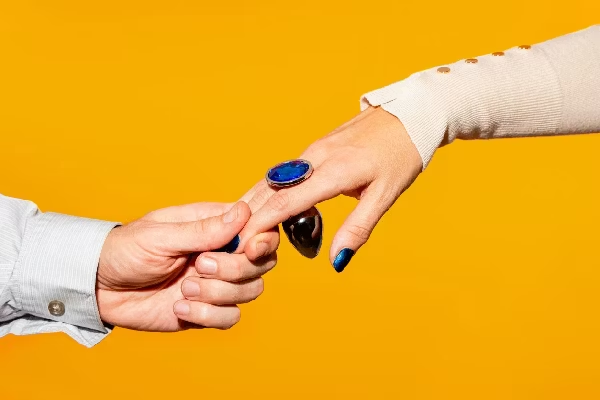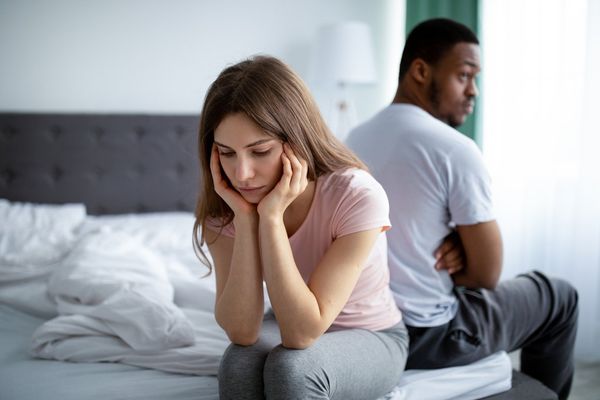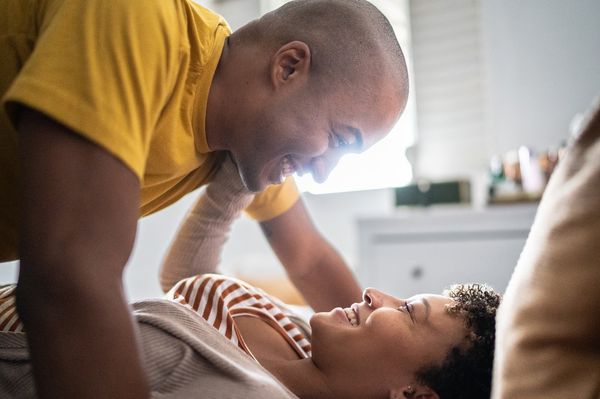May is Women's Health Month.
It's women's health month, and it seems like a good time to mention that sexual health is just as important a part of women's health as any other — and it remains important throughout a woman's life.
To delve into sexual health at every age, I reached out to a handful of women of different ages and sexual orientations and asked them if they'd be willing to speak honestly about their experiences.
I'm thrilled to share their thoughts with you, along with those of Dr. Heather Bartos, an OB-GYN and podcaster who is also a member of HealthyWomen's Women's Health Advisory Council.
Learning about sex
Although sex education has been a part of school curriculums since the 1920s, many of the women I spoke with didn't learn much about sex from their teachers — or their parents.
"My mother was raised Catholic, and the female body was a source of shame and betrayal," said Carole Blemker, 63. "I probably learned about condoms and oral contraceptives from my sister and some of her older friends. It was all a huge secret that we had to keep from our parents."
Lisa Marine, 58, knew from her peers that contraceptives like condoms existed, but that was about it. "None of us really had any information about how those worked and why, not even what they really were," she said. "We just knew you had to have those if you didn't want to have a baby."
Bartos has seen, with her patients, how important sex education is, including teaching women about their own bodies. "I still have so many women who don't understand what their vulva is," she said. (For the record, it's the part of your genitals on the outside of your body and includes the vaginal opening, labia, clitoris and the opening to the urethra.)
Preventive care is self-care
Preventive care in the form of screenings like the Pap and HPV tests has been an important part of sexual health care for many of the women I spoke with, regardless of age or sexual orientation.
"With the help of Planned Parenthood, I had access to safe birth control, check-ups, Paps, etc., and was always really good about getting yearly exams," said Nicole Gruter, 50. "My methods of birth control have changed over the years, but I always have been consistent with having my sexual health be a priority."
Unfortunately, many women aren't getting screened as often as they should. One study conducted between 2005 and 2016 found that only 64.6% of women ages 30 to 65 were up to date with their screenings in 2016.
For Thuy Nguyen, 46, spreading the word about the importance of routine screening is personal. "I had part of my cervix removed because of cancerous cells," she said. "I can't stress enough the importance of being checked out regularly. Those procedures and exams have likely saved my life, or at the very least prevented me from going through a lot of pain and more intense treatment."
Bartos, too, believes preventive screening is a crucial part of sexual health care. "Part of sexual health is learning to honor your body, not someone else's," Bartos said. "And that includes self-care, such as prevention."
Motherhood and shifting sexual priorities
To say motherhood has an impact on sexual health is a huge understatement. Giving birth can permanently alter a woman's body, and new mothers may be too overwhelmed or exhausted to even think about sex.
"Having a baby now, I am so hands-on with her that sex is not on my mind as much," said Tisha Griffith, who is 42 and has a 15-month-old daughter and a 12-year-old son. "Sex can seem like another chore at times, admittedly."
"When the body chooses between sleep, food or sex, the mother's body will nearly always choose the first two," Bartos said. "It's a matter of survival."
Menopause brings changes to body, mood and libido
Not all women become mothers, but we all experience another milestone that massively affects sexual health — menopause. Along with its predecessor, perimenopause, menopause is often a time of physical challenges and emotional turmoil that influence a woman's relationship with her body and with sex.
"Menopause can be a huge problem for sexual health if women are not educated about the process," Bartos said.
Nguyen is currently struggling with perimenopause symptoms that affect her self-esteem and, in turn, her libido. "It's difficult to feel sexy or sexually aroused when your body is a stranger and your mind isn't able to quell the negativity you feel," she said.
Blemker was surprised by how much menopause changed her sex drive. "Right before I went through menopause, I had a very high libido," she said. "It was really weird to go from that to almost a flatline! I figured it was my body's last hurrah for reproduction."
For Marine, who is happily post-menopausal, both perimenopause and menopause were difficult. "Changing hormones affected my body, my sex drive, my emotions. I struggled with self-identity as a woman and a sexual being," she said. "I'm really grateful to be on the other side of so many of those things."
Age provides perspective and acceptance
It's undeniable that aging changes the body, but it also allows for reflection, growth and new perspectives. Although Griffith is less interested in sex now than she was in her 30s, she's more confident and empowered. "I'm not afraid of standing up for what I do and do not want in the bedroom," she said.
Gruter is also more likely to tell a sexual partner what she wants now than when she was younger. And she loves her body more than ever. "Yes, it's heavier, a bit saggier and lumpier, but it has carried me through life with such astonishing health and strength, I can be nothing but grateful for every square inch of myself, every day."
Blemker shares Gruter's gratitude for her body. "I don't obsess over it like I did when I was younger. I am more accepting of its imperfections. I am also amazed at how well it functions and grateful for that. I don't take it for granted."
- Sex Doesn't Have to End With Menopause ›
- Yes, There Is Sex After Menopause ›
- 9 Ways Menopause Can Give Your Sex Drive a Boost ›
- Sex After Menopause: The Golden Years? - HealthyWomen ›
- Menopause and Your Sexual Health: When Dryness Equals ... ›
- How to Have the Best Sex of Your Life After Menopause ... ›
- Top 10 Sex Tips You Need Right Now - HealthyWomen ›







